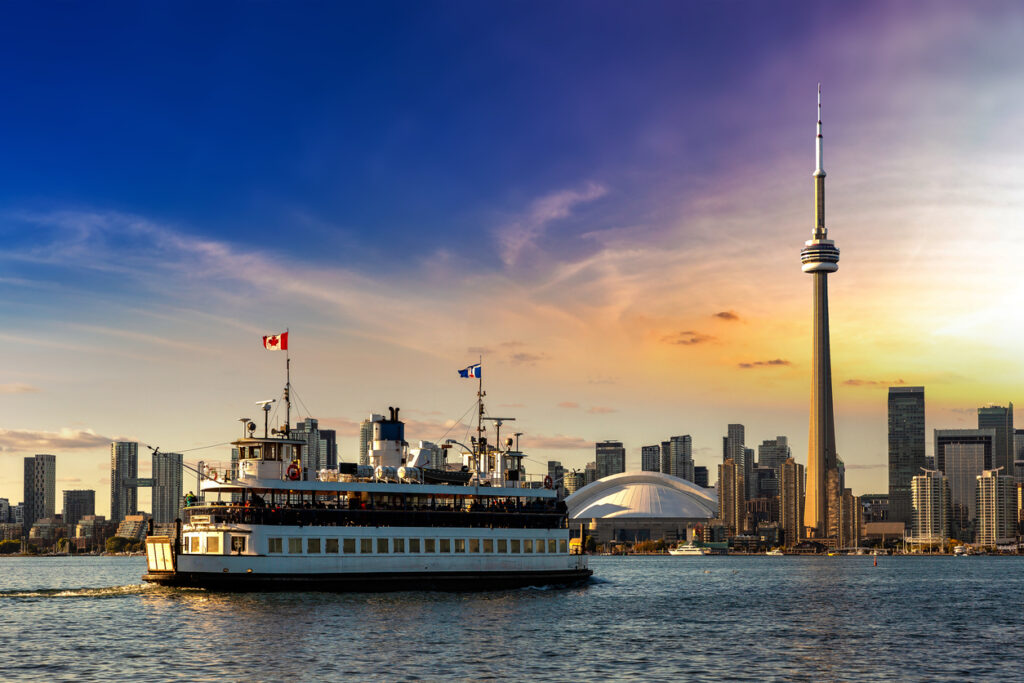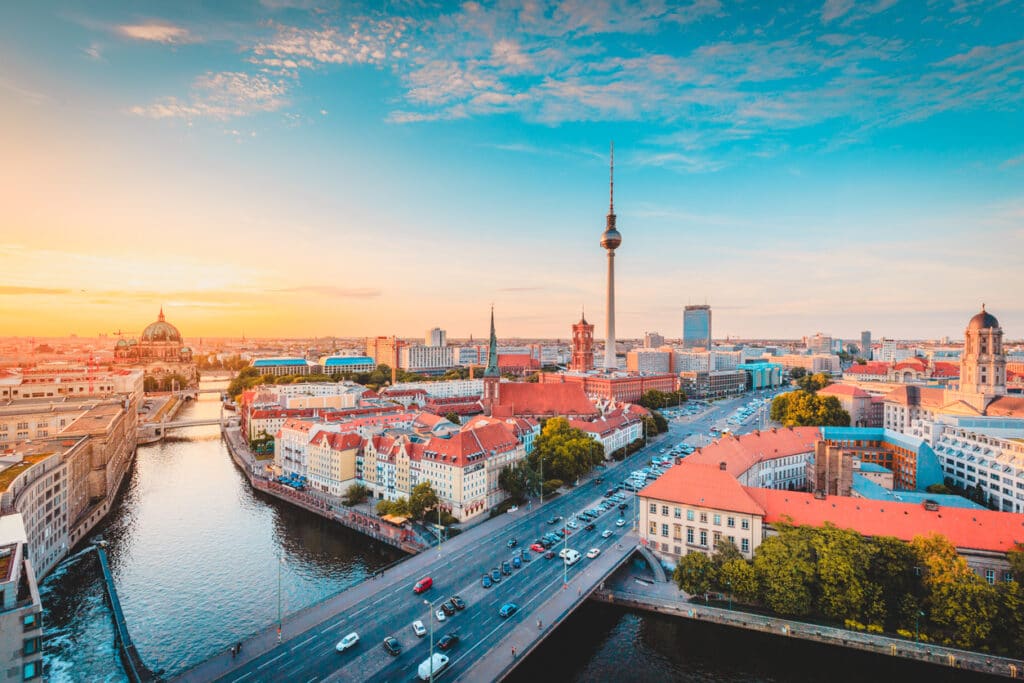Living in South Africa offers a vibrant culture and unique experiences, but as an American expatriate, it’s crucial to understand your tax obligations both in the U.S. and South Africa. Navigating the complexities of dual taxation can be challenging, but with the right information, you can ensure compliance and optimize your financial situation.
Snapshot of expat life in South Africa
- Primary tax forms: Form 1040 (U.S.), ITR12 (South Africa)
- Tax year: U.S.: January 1 – December 31; South Africa: March 1 – February 28/29
- Tax deadline: U.S.: April 15; South Africa: Varies annually
- Currency: South African Rand (ZAR)
- Population: Approximately 60 million
- Number of Americans living in South Africa: Approximately 25,000
- Capital city: Pretoria (administrative), Bloemfontein (judicial), Cape Town (legislative)
- Primary language: 11 official languages; English is widely used
- Tax treaty: Yes
- Totalization agreement: No
Americans living in South Africa: Visa types
As an American considering permanent residency in South Africa, it’s essential to understand the various visa options available. Below are the primary permanent residency visas tailored to different circumstances:
Spousal Visa
Who it’s for: Individuals married to a South African citizen or permanent resident for at least five years.
Overview: This visa allows spouses to reside permanently in South Africa, fostering family unity.
Requirements:
- Proof of a valid marriage of at least five years.
- Evidence of cohabitation and shared financial responsibilities.
- Medical and police clearance certificates.
Work Visa
Who it’s for: Foreign nationals who have held a valid work visa in South Africa for a minimum of five consecutive years.
Overview: This visa grants permanent residency to individuals contributing to the South African workforce over an extended period.
Requirements:
- Proof of continuous employment in South Africa for at least five years.
- A permanent job offer from a South African employer.
- Medical and police clearance certificates.
Relative’s Visa
Who it’s for: First-degree relatives (parents or children) of a South African citizen or permanent resident.
Overview: This visa facilitates family reunification by allowing close relatives to reside permanently in South Africa.
Requirements:
- Proof of the familial relationship (birth certificates, etc.).
- Evidence of financial support if the applicant is dependent.
- Medical and police clearance certificates.
Retirement Visa
Who it’s for: Individuals wishing to retire in South Africa with sufficient financial means.
Overview: This visa permits retirees to enjoy their retirement years in South Africa.
Requirements:
- Proof of a monthly income of at least R37,000 from pensions, annuities, or other passive income sources.
- Medical and police clearance certificates.
Financially Independent Visa
Who it’s for: Individuals with a net worth exceeding R12 million.
Overview: This visa offers permanent residency to those who can demonstrate substantial financial independence.
Requirements:
- Proof of net assets totaling over R12 million.
- Payment of a one-time fee of R120,000 upon approval.
- Medical and police clearance certificates.
Business Visa
Who it’s for: Entrepreneurs intending to establish or invest in a business in South Africa.
Overview: This visa supports individuals aiming to contribute to the South African economy through business ventures.
Requirements:
- A comprehensive business plan.
- Proof of investment capital as stipulated by the Department of Home Affairs.
- Medical and police clearance certificates.
Each visa category has specific criteria and application processes. It’s advisable to consult with South African immigration authorities or a qualified immigration consultant to determine the best pathway for your circumstances.
How to apply for a South African visa as a U.S. citizen
Applying for a South African visa as an American citizen involves several clear steps. Here’s a straightforward approach to help you navigate the process:
1. Identify the right visa type
Decide which visa best matches your situation—spousal, work, relative’s, retirement, financially independent, or business. Review the specific requirements for your chosen category.
2. Gather your documents
Collect the necessary paperwork, which typically includes:
- A valid U.S. passport
- Proof of eligibility for your visa type (e.g., marriage certificate, employment contract, proof of income, or business plan)
- Medical and police clearance certificates
- Recent passport-sized photos
3. Complete the application
Download and fill out the correct application form (Form BI-947 for permanent residency) from the South African Department of Home Affairs website.
4. Submit your application
Submit your application at the nearest South African embassy, consulate, or visa application center in the United States. Some categories require you to apply from outside South Africa.
5. Attend an interview (if required)
You may be asked to attend an in-person interview or provide biometric data.
6. Wait for processing
Processing times can vary but generally take several months. Track your application status through the embassy or consulate.
7. Receive your visa decision
Once approved, you’ll receive your visa in your passport. Check the validity and any conditions before finalizing your travel plans.
Healthcare options for Americans living in South Africa
Navigating healthcare as an American living in South Africa brings a new set of choices and considerations. Understanding the local system and your options can help you feel more confident about staying healthy abroad.
How the South African healthcare system works
South Africa has a dual healthcare system:
- Public sector: Funded by the government, offering basic healthcare services at little or no cost. Public facilities are widespread but often face challenges like longer wait times and limited resources.
- Private sector: Operates alongside the public system, with modern hospitals and clinics and shorter wait times. Care here is generally of high quality, but costs can be significant without private insurance.
Healthcare options for Americans living in South Africa
As an expat, you have several paths to access healthcare:
- Public healthcare: Available to residents, but service quality may not match what you’re used to in the U.S. You’ll need to register at your local clinic or hospital.
- Private healthcare: Most Americans choose private care for faster service and facilities more similar to those in the U.S. You can pay out-of-pocket or purchase a local or international health insurance plan.
- International health insurance: Many providers offer plans tailored to expats, covering both South African and international care.
- Travel insurance: Useful for short-term stays, but it’s not a substitute for comprehensive health coverage if you’re living in South Africa long-term.
Pros and cons of healthcare for American expats living in South Africa
Pros:
- Access to high-quality private medical facilities
- Lower costs for private care compared to the U.S.
- Wide range of internationally trained doctors
Cons:
- Public healthcare may not meet U.S. standards for wait times or resources
- Private care can become expensive without adequate insurance
- Navigating insurance policies and paperwork can be complex
By understanding your healthcare options, you’ll be better equipped to make choices that suit your needs and help you feel at home in South Africa.
Cost of living for American expats in South Africa compared to the U.S.
Adjusting to the cost of living in South Africa can be a big shift—sometimes a pleasant surprise, sometimes a challenge. Many Americans find their dollars stretch further here, but it’s important to understand where and how your spending will change. Let’s break down some of the key monthly expenses you’ll likely encounter, compared side-by-side with typical costs in the U.S.:
| Expense | South Africa (USD, average monthly) | U.S. (USD, average monthly) |
| Groceries | $200 – $350 | $400 – $600 |
| Housing (1BR apt, city center) | $400 – $700 | $1,500 – $2,500 |
| Public transport | $40 – $70 | $70 – $120 |
| Phone plan | $15 – $25 | $40 – $70 |
Note: These are general ranges. Actual costs will vary based on city, lifestyle, and personal choices. Cape Town and Johannesburg are typically more expensive than smaller cities.
Pros and cons of the cost of living for Americans in South Africa
Pros:
- Your U.S. dollars often go further, especially for housing and dining out.
- Many everyday services (housekeeping, childcare) are more affordable.
- Fresh produce and local goods are generally inexpensive.
Cons:
- Imported or U.S.-brand goods can be much more expensive.
- Incomes are typically lower, so expat salaries may not always match U.S. standards.
- Private healthcare and international school fees can add up quickly.
- Currency fluctuations (U.S. dollar to South African rand) can impact your budget from month to month.
Being aware of these differences helps you plan a budget and make the most of your financial resources while living abroad. If you’re paid in U.S. dollars, you may find you’re able to save more or enjoy a higher standard of living. But if you’re earning locally, it’s important to adjust expectations and plan for the costs that matter most to you.
Where do American expats tend to live in South Africa?
- Cape Town: Known for its stunning scenery, vibrant arts scene, and relaxed lifestyle, Cape Town is a top choice for Americans. Popular neighborhoods include Sea Point, Gardens, and Constantia, where you’ll find a mix of expats and locals.
- Johannesburg: As South Africa’s largest city and economic hub, Johannesburg attracts Americans working in business, education, and NGOs. Many choose suburbs like Sandton, Rosebank, and Parkhurst for their amenities and established expat communities.
- Durban: With its subtropical climate, beaches, and laid-back atmosphere, Durban appeals to Americans seeking coastal living. Areas like Umhlanga and Morningside are especially popular for their safety and expat-friendly amenities.
- Pretoria: Known for its diplomatic community, Pretoria is home to many embassies and international organizations. Americans often settle in neighborhoods like Waterkloof and Brooklyn, which offer green spaces and convenient access to schools.
Tax implications for Americans living in South Africa
Relocating to South Africa as an American brings adventure, new perspectives, and—inevitably—questions about your tax responsibilities. Let’s walk through what you need to know so you can stay compliant and avoid surprises from either the IRS or the South African Revenue Service (SARS).
American expats’ tax obligations
As tax professionals who work with expats every day, we know how confusing it can be to navigate overlapping tax systems. Here’s a breakdown of the key areas you need to keep in mind as an American living in South Africa.
Filing U.S. tax returns
Yes, you still need to file a U.S. tax return—even if you haven’t set foot in the States for years. The U.S. taxes are based on citizenship, not residence. That means:
- You must file a federal tax return every year if your income meets the minimum threshold, regardless of where you live or earn it.
- The IRS offers an automatic two-month extension (to June 15) for expats, but interest still accrues from April 15 if you owe taxes.
- If you miss filing, penalties can add up quickly.
South African taxes
South Africa taxes residents on their worldwide income. If you live in South Africa for more than 183 days in a year and have a permanent home there, you’re likely considered a tax resident.
- The South African tax year runs from March 1 to the end of February.
- You’ll need to register with SARS (The South African Revenue Service) and file an annual return.
- Income earned globally is reportable, though double taxation can often be avoided (more on that below).
💡 Pro Tip:
Tax residency is determined differently in South Africa than in the U.S., so it’s important to check your status with SARS.
Foreign Earned Income Exclusion (FEIE)
The Foreign Earned Income Exclusion (FEIE) allows you to exclude up to $130,000 (for tax year 2025; this usually adjusts annually) of foreign-earned income from your U.S. taxes.
- To qualify, you must meet either the Physical Presence Test (330+ days outside the U.S. in a 12-month period) or the Bona Fide Residence Test (prove you’ve made South Africa your home for a full tax year).
- Only earned income (salary, wages, self-employment) qualifies—not investment or rental income.
Foreign Tax Credit (FTC)
If you pay income taxes to South Africa, you can often claim a dollar-for-dollar credit against your U.S. tax bill through the Foreign Tax Credit.
- Report foreign taxes paid using Form 1116.
- This credit is especially useful if your income exceeds the FEIE limit, or for types of income that don’t qualify for the exclusion.
- The foreign tax credit can help you avoid double taxation, but the rules can get complex.
💡 Pro Tip:
The credit can’t be claimed on taxes paid on income that’s already excluded under the FEIE.
Tax treaty
The U.S. and South Africa have a tax treaty, but it’s limited in scope. It mainly helps determine which country gets to tax certain types of income (like pensions or dividends), and prevents double taxation in some scenarios.
- The treaty doesn’t exempt you from filing your U.S. return.
- Certain types of income—such as retirement income—may be taxed differently because of the treaty.
- The “saving clause” means most Americans still need to follow standard U.S. rules, but the treaty can help in specific situations.
Reporting foreign bank accounts
If you have bank or financial accounts in South Africa (or elsewhere outside the U.S.) and the total value exceeds $10,000 at any point in the year, you must report them to the U.S. Treasury via the FBAR (FinCEN Form 114).
- This is in addition to your tax return.
- Penalties for non-compliance are steep—even accidental mistakes can trigger fines.
- Certain investments (like retirement accounts) may also require reporting on IRS Form 8938 (FATCA).
💡 Pro Tip:
Reporting is about transparency, not taxes—you might not owe extra, but you do need to disclose.
Social Security
If you work for a U.S. employer or are self-employed, you may still owe U.S. Social Security taxes. However, South Africa and the U.S. do not have a totalization agreement.
- This means you could end up contributing to both systems, depending on your work situation.
- If you’re employed by a South African company, you’ll typically contribute to South African social security (“Unemployment Insurance Fund” and other programs), not U.S. Social Security.
- If you’re self-employed, you may owe U.S. self-employment tax, even while living abroad.
Navigating these overlapping obligations can be overwhelming, but with the right guidance, you can stay compliant and avoid costly mistakes. If you’re feeling uncertain, don’t hesitate to reach out to a CPA who specializes in expat taxes—we’re here to help you make sense of it all.Ready to take the next step? Don’t wait—reach out today to get expert guidance and ensure you’re making informed decisions for your future. Your peace of mind starts here!
Frequently Asked Questions
-
Do Americans living in South Africa have to file U.S. tax returns every year?
Yes, as an American citizen living in South Africa, you’re still required to file a U.S. federal tax return every year if your income meets the minimum filing threshold. This applies no matter where you live or earn your income. If you qualify, you can use benefits like the Foreign Earned Income Exclusion (FEIE) or the Foreign Tax Credit to reduce or eliminate double taxation, but you must still file.
-
How does South African tax residency affect Americans living in South Africa?
If you’re living in South Africa for more than 183 days in a year and have a permanent home there, you’re likely considered a tax resident by the South African Revenue Service (SARS). This means your worldwide income is subject to South African taxes, so it’s important to understand both U.S. and South African tax rules to avoid surprises.
-
Are there ways to avoid double taxation for Americans living in South Africa?
Yes, there are ways to avoid being taxed twice on the same income. The most common tools are the Foreign Tax Credit and the Foreign Earned Income Exclusion, both of which are available to Americans living abroad, including those in South Africa. There’s also a U.S.-South Africa tax treaty that covers certain types of income and can help clarify which country gets to tax what.
-
Do Americans living in South Africa need to report their South African bank accounts to the IRS?
If the total value of your foreign financial accounts—including those in South Africa—exceeds $10,000 at any point during the year, you must file an FBAR (FinCEN Form 114). Some accounts and investments may also need to be reported on IRS Form 8938 (FATCA). Failing to report can lead to significant penalties, so it’s important to stay compliant.
-
Can Americans living in South Africa contribute to the U.S. Social Security while working abroad?
It depends on your work situation. If you’re self-employed or working for a U.S. employer while living in South Africa, you may still owe U.S. Social Security taxes. However, there’s no totalization agreement between the U.S. and South Africa, so you could end up paying into both systems. If you work for a South African employer, you’ll usually contribute only to South African programs like the Unemployment Insurance Fund.

 Connect on LinkedIn
Connect on LinkedIn

